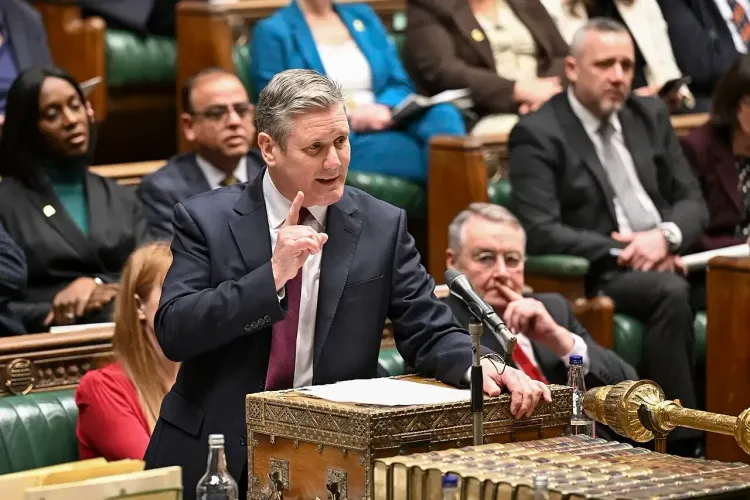UK Government Introduces New Framework to Enhance Housing Development

London, Dec 12 (NationPress) The Labour government in the United Kingdom (UK) has revealed updated initiatives aimed at reforming the planning system for new housing projects, necessitating that local councils establish a timeline for house construction.
As part of its extensive agenda to build 1.5 million homes prior to the next general election, the government has set housing goals for councils. This effort builds on the Labour Party's pledge to create an annual target of 370,000 new homes in England, catering to the needs of around 1.3 million households currently on social housing waiting lists.
The revised measures also feature specific regulations for the release of land from the Green Belt—protected zones around urban areas designed to curb urban expansion and maintain natural landscapes, as reported by Xinhua news agency.
Under exceptional circumstances, land may be released following a designated hierarchy: priority will be given to previously developed sites, followed by grey belt (undeveloped land within the Green Belt), and lastly other areas.
Any housing projects on released Green Belt land must fulfill crucial conditions, including providing at least 50 percent affordable housing, implementing essential infrastructure enhancements, and creating or improving accessible green spaces.
When questioned by Sky News this morning about the central government potentially overriding Labour councils to approve housing in certain regions, British Prime Minister Keir Starmer underscored the significance of locally-led planning.
"If a local plan meets the requirements, then there’s no need for any intervention at all," he stated. "If intervention is needed, then brownfield sites will be prioritized, followed by grey sites, and Green Belt areas will be the last option."
Political analysts and commentators have been notably less optimistic about Labour’s ability to regain momentum following a somewhat rocky start after the July 4 general election.
Labour had been in opposition since 2010 before Prime Minister Keir Starmer successfully led the party to victory this year, achieving a significant 174-seat majority in the UK parliament.
Xinhua reported that among the most celebrated accomplishments during Starmer’s first 100 days in office were the government’s resolution of junior doctors' and train drivers' strikes, the cancellation of the contentious Rwanda scheme proposed by the previous Conservative government, substantial progress in launching GB Energy, and the elimination of no-fault evictions for tenants.










